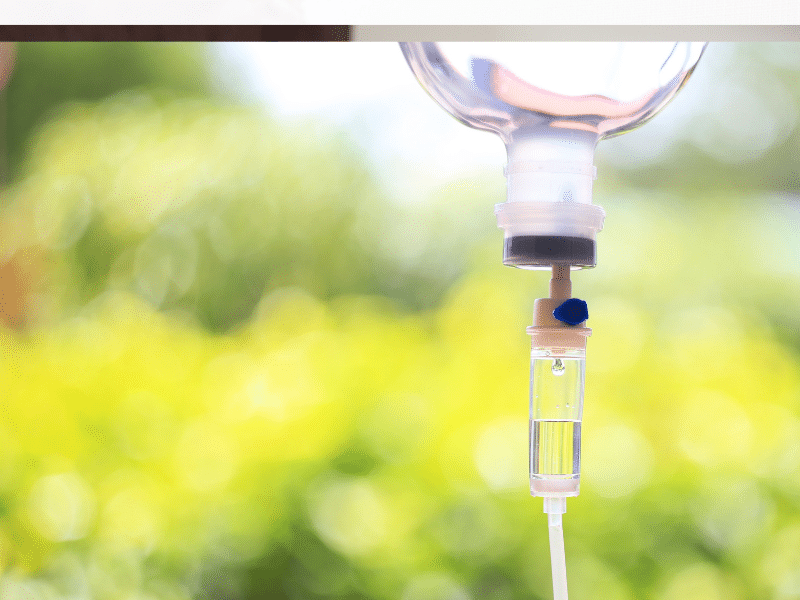
Most of us who have been 21 have experienced the dreaded side effects of a fun night out over drinks: exhaustion, headache, nausea, dry mouth, and more. It’s the worst. And the go-to “cures” like greasy food, over-the-counter pain meds and a bottle of electrolyte water don’t always help us feel like new again – for a while, anyway.
There’s a newer hangover “cure” on the block that’s rising in popularity: IV Hydration Therapy. The best part? According to online reviews, many people claim that IV fluids for hangovers truly do work for them after a night of partying. Here are five things to know if you’re considering it.

IV therapy offers fast results.
The intravenous route is considered to be the quickest way for the body to receive fluids, vitamins, electrolytes, and medications. The reason why is pretty simple: the IV delivers fluids straight to the bloodstream. Which is a plus if you don’t feel like waiting for your digestive system to process water, Advil, and/or anti-nausea medication.
As for when the anti-hangover effects could be expected to kick in with IV treatment? Some people may feel better right after, but most can expect to notice the benefits about two to four hours later, lasting into the following day.
What’s in the IV matters.
At establishments where IV Hydration Therapy is offered across the country, the fluids administered through the drip for hangover sufferers generally include:
- Anti-nausea medication and pain medication for faster relief of symptoms
- Saline to help replenish fluid levels
- Vitamins to counteract the effects of alcohol, which inhibits vitamin and mineral absorption (B-Complex vitamins are particularly affected by excessive alcohol use)
- Electrolytes to stave off vomiting and fatigue
- Glutathione to provide detoxification benefits to the liver
There are certain risks to be aware of.
Keep in mind, this is still technically considered to be an invasive treatment. IV insertion runs the risk of the injection site developing an infection, or a vein getting inflamed or clotting. There’s also a risk of throwing off your electrolyte balance. People with medical conditions like kidney issues or high blood pressure should consult a physician prior to this kind of treatment as well.
One more thing: Medical critics have pointed out that dehydration is not the sole cause of a hangover, therefore hydration is not the sole “cure.” Merely drinking fluids is probably the best option, and those who are dehydrated and are too sick to do so should receive medical care.
Don’t expect it to be covered by health insurance.
Unfortunately, since your hangover cure may not be deemed medically necessary by health insurance companies, this particular kind of IV treatment for hangovers likely won’t get covered. Out-of-pocket expenses can range from about $100-$400.
There can be numerous physical benefits.
The good news: depending on the cocktail of vitamins, minerals, and antioxidants you’re receiving, the body can experience benefits beyond a hangover “cure.” That can include energy and immunity boosts. Be sure to ask the professional administering your IV in advance so you can be aware of all of the positive effects you can anticipate.
